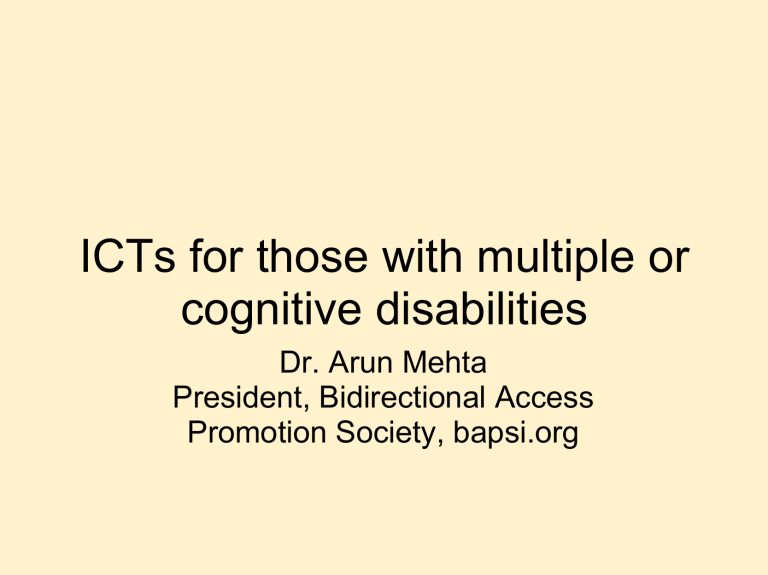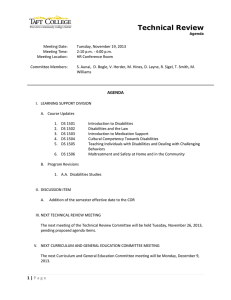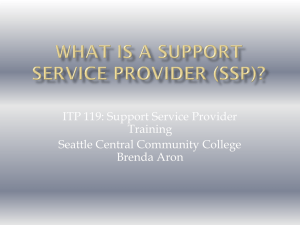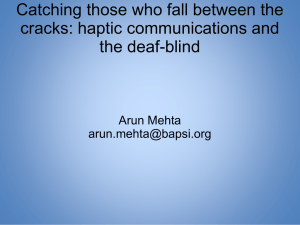ICTs for those with multiple or cognitive disabilities Dr. Arun Mehta

ICTs for those with multiple or cognitive disabilities
Dr. Arun Mehta
President, Bidirectional Access
Promotion Society, bapsi.org
The special problems of the deaf-blind
• Often not even separately counted during a census, but in
India alone, almost half a million deaf-blind children estimated
• Neither does technology for the blind work for them, nor does that for the deaf
• The only way for a deaf-blind person to use a computer or the Internet was to use a refreshable Braille device costing thousands of Dollars
• Relatively little material is available in Braille, particularly in poor countries and rural areas
• Both in blindness and deafness, there are varieties and grades: multiply the two, and you get very large variety in deaf-blindness. Hard to find optimal technological solutions
Bapsi's innovations for the deaf-blind
• PocketSMS is a free app for smart phones that allows a deaf-blind person to receive and send text messages
• Incoming messages are communicated to the user via vibration in Morse code (170 year old technology).
• The user can type a reply using a QWERTY keyboard if one available, or use gesture-recognition
(e.g. Graffiti)
• We developed a Morse trainer as well
• Mail, Wikipedia, Twitter, as well as access to text-to-speech and speech-to-text in the pipeline
• Coded by a student (Anmol Anand) under summer training
• http://www.bapsi.org/Home/pocketsms-for-android for more
Problems relating to cognitive disabilities, and Bapsi's approach
• the variety of disabilities, their combinations and varying severities indicate that we need different software, content too, for each child
• also, the software must grow with the child, and be able to handle multiple languages
• It must be able to do all the different things people do with computers
• Our free cloud-based Skid platform
(skid.org.in) tries to scratch the surface here
• Exploring singing and other artisitic skills, to open new channels of communication
Tech industry and cognitive disabilities
• Employees of tech companies are several times more likely to be autistic as compared to general population
• Because there is a likely genetic component in autism, the problem is even more severe in the next generation
• ASD Levels in Eindhoven (tech hub):229/10000; Haarlem
84, Utrecht 57 per 10000 among children aged 4 to 16
• Persons with cognitive disabilities typically find it much easier to communicate through computers than face-to-face
• In other words, the tech industry should be dealing with this problem at 3 levels: their own employees, their children, and also the technology they make, which is often the primary means of communication for those with such disabilities
• Most companies pay little to no attention to these problems
“Internet access as basic human right:"
Excellent initiative, but…
• With existing technology, Internet access is impossible for those who aren't rich but have severe disabilities, for whom tech development must be a priority, free and open source!
• Technology customization for each individual essential, but this may be impractical given hourly rates in the developed world. The manpower and cost-structure of developing countries makes this approach possible, giving us the potential to unlock some brilliant minds
• Education needs to move away from trying to teach the student everything, to teaching her only essential skills, including one that affords her employment and self-respect
• Better filters needed to reduce web pages to only the essential information





